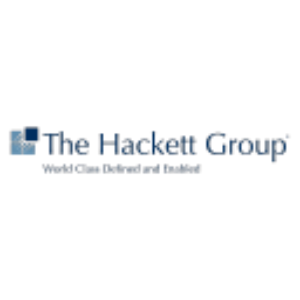Triple Threat: All Working Capital Metrics Degrade for the First Time in a Decade
Potential
After a year of growth despite inflationary and recessionary risks, the largest
This presents a concerning trend for businesses because macroeconomic uncertainties and inflationary pressures are expected to persist, imposing additional external constraints on working capital. This effect is compounded by persistently higher interest rates, significantly increasing the carrying cost of money trapped in working capital compared to previous years. As a result, redoubling efforts on working capital optimization is more urgent than ever before to navigate the increasingly volatile market conditions effectively.
Equally alarming is the softening of aggregate revenue figures. Over the past decade, excluding the pandemic year, revenue has averaged a
The widening gap between best-in-class and median companies continued to expand, driven primarily by the significant improvements of top performers rather than the degradation of median ones. Historically, the ratio of top-to-median performance has averaged around 2.95-to-1, but this year it has increased by
“This widening gap underscores the imperative for businesses to diligently manage their financial resources to remain competitive. As the disparity grows, so does the opportunity for competitive advantage,” said Istvan Bodo, director of Strategy and Operations at The Hackett Group.
One of the most notable changes is the substantial degradation in DSO, which increased by
DIO saw a slight rise of 0.01 days, marking its first degradation since the pandemic. Despite this marginal increase, DIO remains significantly improved from the pandemic peak of nearly 58 days. Industries with the most significant downturn in inventory performance were those heavily dependent on energy in their cost of goods sold, reflecting potential advance buying to hedge against geopolitical uncertainties.
DPO declined by 0.1 days this year, continuing a trend of deterioration seen since the pandemic, with an overall
Additionally, The Hackett Group’s research identified
“Gen AI will provide new enablement opportunities that will enhance working capital management across the board,” said Shawn Townsend, director of Strategy and Operations at The Hackett Group. “Leading businesses will use Gen AI to improve cash flow forecasting accuracy, predict optimal inventories that meet ever-changing customer demand, develop more robust just-in-time sourcing demand planning and more.”
The increased carrying cost of money trapped in working capital, driven by high interest rates, underscores the necessity for companies to intensify their efforts to optimize working capital and effectively navigate volatile market conditions.
The Hackett Group’s 2024 Working Capital Survey is currently featured on CFO.com. A summary of the research findings, including detailed industry analysis and working capital improvement recommendations, is available on a complimentary basis, with registration.
About The Hackett Group
The Hackett Group, Inc. (NASDAQ: HCKT) is an IP-based, Gen AI strategic consulting and executive advisory firm that enables Digital World Class® performance. Using AI XPLR™ – our AI assessment platform – our experienced professionals guide organizations to harness the power of Gen AI to digitally transform their operations and achieve quantifiable, breakthrough results, allowing us to be key architects of their Gen AI journey.
Our expertise is grounded in unparalleled best practices insights from benchmarking the world’s leading businesses – including
For more information on The Hackett Group, visit: https://www.thehackettgroup.com/ or email: media@thehackettgroup.com.
Trademarks
The Hackett Group, quadrant logo, Quantum Leap and Digital World Class are the registered marks of The Hackett Group.
Cautionary Statement Regarding “Forward-Looking” Statements
This release contains “forward-looking” statements within the meaning of Section 27A of the Securities Act of 1933 as amended and Section 21E of the Securities Exchange Act of 1934, as amended. Statements including without limitation, words such as “expects,” “anticipates,” “intends,” “plans,” “believes,” seeks,” “estimates,” or other similar phrases or variations of such words or similar expressions indicating, present or future anticipated or expected occurrences or outcomes are intended to identify such forward-looking statements. Forward-looking statements are not statements of historical fact and involve known and unknown risks, uncertainties and other factors that may cause the Company’s actual results, performance or achievements to be materially different from the results, performance or achievements expressed or implied by the forward-looking statements. Factors that may impact such forward-looking statements include without limitation, the ability of The Hackett Group to effectively market its digital transformation, artificial intelligence, and other consulting services, competition from other consulting and technology companies that may have or develop in the future, similar offerings, the commercial viability of The Hackett Group and its services as well as other risk detailed in The Hackett Group’s reports filed with the United States Securities and Exchange Commission. The Hackett Group does not undertake any duty to update this release or any forward-looking statements contained herein.
View source version on businesswire.com: https://www.businesswire.com/news/home/20240829955745/en/
Source: The Hackett Group, Inc.







